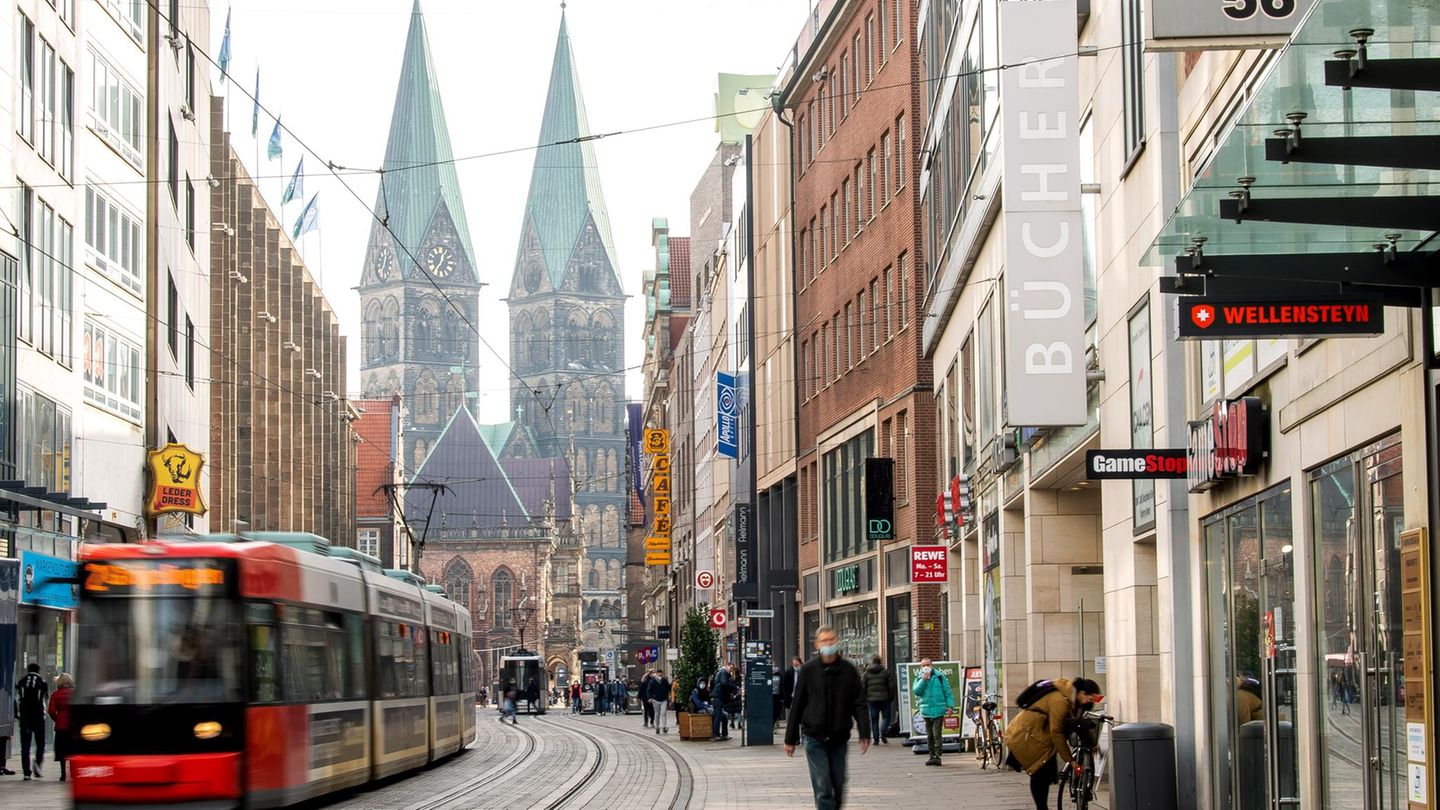In the fight against the pandemic, Bremen is the German champion – at least when it comes to vaccination. Soon the smallest federal state could even achieve herd immunity. How did Bremen do it?
A large mountain of debt, even higher crime rates, a lot of poverty and an education system worthy of criticism: if the smallest federal state in Germany makes it into the headlines, it usually doesn’t mean anything good. But that changed during the pandemic. According to almost 72 percent of all Bremen residents at least once, 63 percent even completely vaccinated against Corona. The Hanseatic city’s vaccination campaign is therefore considered to be the most successful in all of Germany.
But what is the recipe for success of the Hanseatic vaccination campaign? Lukas Fuhrmann, spokesperson for the Senator for Health, Women and Consumer Protection, mentions the stern three points: “Direct approach, clear communication and low-threshold vaccination offers.”
Rapid expansion of the infrastructure – thanks to cooperation with companies
As soon as the vaccination started, prioritized groups of people were informed by post about the vaccination option. With the help of the dispatched appointment codes, those affected could arrange a vaccination appointment within a very short time. “The appointments were usually available within seven to ten days,” says Fuhrmann. Vaccinations began in November in the Bremen exhibition halls, which were converted into a vaccination center with the help of the contractor Kurt Zechn, an event agency and employees from the hotel industry. 120,000 people could have been vaccinated a day. According to “Spiegel” information, the number of those willing to vaccinate in the high phases was 7500 per day.
The city set up temporary vaccination centers where the incidences rose particularly sharply. Mobile vaccination teams have also been out and about in the city since mid-June. If you want, you can get vaccinated there without an appointment. “With this we bring the vaccination directly to the people and inform them in advance,” says Fuhrmann.
Herd immunity probably not achievable
In order to also reach foreign-speaking citizens, the Health Senate set up an information campaign in seven languages. So-called “multipliers” informed citizens in parts of the city where the number of foreign citizens with little knowledge of German is particularly high. There was hardly any resistance. “Apparently there is a widespread consensus in Bremen that the vaccination is good and protects,” said Fuhrmann. There are also few problems in Bremen with lateral thinkers or opponents of vaccinations.
However, there remains a residue that cannot be vaccinated. These include, for example, children under the age of 12 for whom no vaccine has yet been approved. According to the Senate for Health, they make up around eleven percent of the total population in the state of Bremen. Five percent of citizens could also not be vaccinated for health reasons. And between ten and 20 percent did not want to be vaccinated at all.
The city records the fact that the incidences and death rate are still low as a success. One could not speak of an imminent herd immunity, however, because Bremen is “not a closed cosmos without external contacts”. Without a high vaccination quota in all of Germany, Europe and around the world, herd immunity will not be achievable.
Nevertheless, the success of the vaccination campaign could have an impact on public life. Mayor Andreas Bovenschulte (SPD) had already called for an amendment to the Infection Protection Act before the Prime Minister’s Conference. Using the incidences as the sole measure of limitations is no longer sufficient. “Either there has to be a mechanism that takes into account the occupancy of hospitals and their intensive care units, or the threshold values have to be raised significantly,” Bovenschulte is quoted as saying by “Spiegel”.
Swell: “”, ,
David William is a talented author who has made a name for himself in the world of writing. He is a professional author who writes on a wide range of topics, from general interest to opinion news. David is currently working as a writer at 24 hours worlds where he brings his unique perspective and in-depth research to his articles, making them both informative and engaging.




